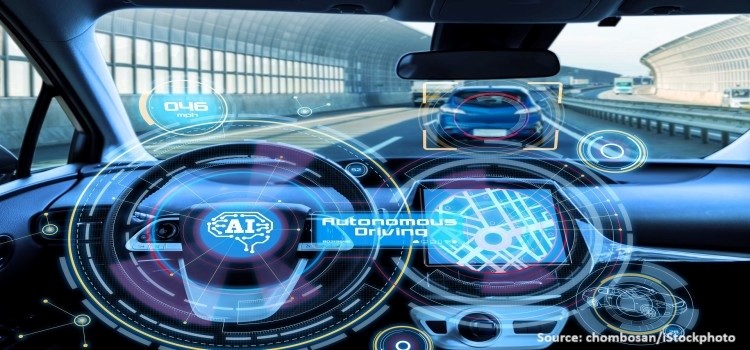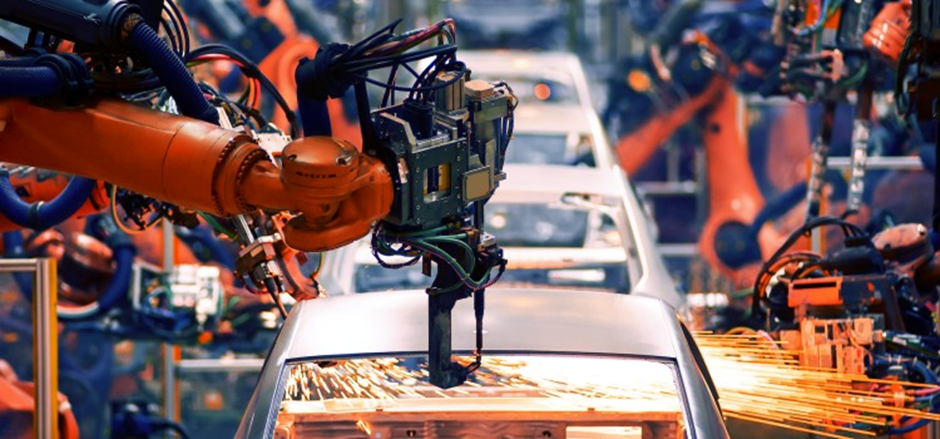Navigating The Road Ahead: Recent Trends and Developments in Automotive AI
17-Sep-2024

Introduction
The automotive industry is amid an extraordinary evolution, primarily steered by the swift progression of artificial intelligence (AI) technology. This transformation spans various facets of the industry, ranging from the advent of autonomous vehicles that promise to redefine transportation to the expansion of advanced driver assistance systems (ADAS) that enhance safety and convenience.
AI has become the driving force behind these innovations, altering how we perceive our vehicles and completely revolutionizing how we interact with them. These changes, driven by the relentless march of technology, are steering the automotive industry toward a future that promises smarter, safer, and more efficient mobility solutions than before.
This article will delve into the recent trends and developments within automotive AI, offering insights into how these advancements reshape how we move from one place to another. It promises a future where vehicles are more than just machines; they are intelligent companions on our journeys.
The Drive Toward Autonomous Vehicles:
The drive toward autonomous vehicles signify a remarkable evolution in the automotive industry. What was once considered a distant dream from science fiction has now materialized, fundamentally reshaping our perception of transportation. At the core of this transformation is Artificial Intelligence (AI), the heart of self-driving technology. Industry giants such as Tesla, Waymo, and traditional automakers are channeling substantial resources into pushing the frontiers of autonomous driving.
These vehicles rely on AI to make split-second decisions, comprehend their surroundings, and navigate complex and dynamic environments. Fueled by machine learning algorithms, they continually enhance their driving capabilities. They draw insights from real-world experiences and data. This iterative process of learning and adaptation is not only making autonomous vehicles a reality but also an ever-improving and safer mode of transportation, thus redefining the future of mobility.
In this drive toward autonomous vehicles, companies such as Tesla utilize Gen AI Technology to bolster its advanced driver assistance system (ADAS). Tesla's renowned autopilot system harnesses generative AI models to comprehend and navigate a broader range of driving scenarios, thereby seeking to enhance its capabilities.
Similarly, Mercedes-Benz embraced generative AI by incorporating a GPT model into over 900,000 participating cars within a beta program. This further propelled the evolution of self-driving technology and illustrated that AI-driven innovations are reshaping the future of mobility.
Advanced Driver Assistance System (ADAS):
ADAS represents a remarkable integration of cutting-edge technology into modern vehicles. Over recent years, these systems have shifted from optional features to becoming standard in most new cars, fundamentally changing our driving experience. Fueled by AI, ADAS has introduced a new era of safety and convenience on our roads. These systems include a variety of features, such as adaptive cruise control for maintaining a safe distance to lane-keeping assistance that ensures vehicles stay in their lanes and automatic emergency braking that intervenes in critical situations to prevent collisions.
The intelligence of ADAS continually refines these functions by learning from real-world scenarios and adapting to diverse driving conditions. As AI algorithms become increasingly sophisticated, ADAS technologies are evolving to provide a seamless and autonomous driving experience. This, in turn, gradually transforms how we interact with our vehicles and make the roads safer for everyone.
In alignment with the broader trend in the automotive industry toward democratizing ADAS features, Haomo AI, a Chinese startup, introduced cost-effective ADAS kits. These kits are designed to make ADAS technology more affordable and accessible than before, potentially contributing to increased safety and assistance in budget-friendly vehicles.
This move aligns with the industry's mission to extend the benefits of ADAS to a wider range of vehicles. It also ensures that advancements in safety and convenience are not confined to premium models but are accessible to a broader demographic of drivers. Haomo AI's innovative approach is set to play a pivotal role in reshaping the landscape of automotive safety technology.
Data-Driven Insights for Maintenance:
Predictive maintenance, empowered by AI, represents a significant leap forward in the automotive industry's approach to vehicle upkeep. These algorithms meticulously analyze data streamed from various vehicle sensors, scrutinizing everything from engine performance to tire wear. By sifting through this data, AI can accurately predict when maintenance is required, often identifying potential issues before they lead to breakdowns.
The result is increased vehicle reliability and substantial cost savings for vehicle owners and fleet operators. Beyond the financial benefits, this technology aligns with sustainability goals by reducing the unnecessary consumption of resources. Predictive maintenance exhibits efficiency, cost-effectiveness, and environmental responsibility, making it a pivotal advancement in the automotive industry.
Compredict, a German startup, is actively working on software harnessing AI to forecast maintenance requirements and monitor vehicle utilization. In collaboration with Silicon Valley's Palantir Technologies, the company is advancing virtual sensors for connected cars to enhance efficiency and sustainability. A forthcoming trend suggests that upcoming software-driven vehicles rely on data-oriented virtual sensors to supplant conventional hardware sensors in various automotive functions.
Voice Assistants and Infotainment:
Voice assistants and AI-driven infotainment systems have redefined the in-car experience, creating a seamless blend of convenience and entertainment. As the automotive industry races toward automation, these technologies become integral components of modern vehicles.
Voice-activated controls, powered by AI, allow drivers to interact with their cars more naturally and safely than before. From adjusting navigation routes to selecting music and configuring vehicle settings, these voice commands reduce distractions, enhancing safety and driver focus.
AI-infused infotainment systems cater to passengers, offering personalized content recommendations and keeping long journeys enjoyable. Whether it is about suggesting podcasts, curating playlists, or providing real-time information, these systems engage and entertain to ensure that the in-car experience is no longer just about getting from point A to B but about relishing the journey.
Qualcomm, a leader in technological advancements, is at the forefront of improving vehicle voice assistants. Its objective is to substantially upgrade these systems, making interactions with in-car voice assistants more natural and efficient than before.
Tasks such as controlling navigation, entertainment, and vehicle settings will become smoother and more intuitive for drivers and passengers. By focusing on enhancing this technology, Qualcomm aims to contribute to the growing trend of integrating sophisticated voice-assisted features into vehicles. This further improves user experiences and overall road safety.
Energy Efficiency and Sustainability:
Energy efficiency and sustainability have become crucial in the automotive industry, and AI is proving to be a driving force in this pursuit. In a world where environmental concerns are at the forefront, the integration of AI is a game-changer. AI's ability to optimize energy consumption is particularly evident in electric vehicles (EVs), in which range and environmental impact are critical.
By analyzing a multitude of data points, AI algorithms refine the usage of energy in EVs, extending their range and reducing their carbon footprint. This meets the demands of consumers who seek eco-friendly transportation and aligns with stringent emissions regulations.
AI empowers automakers to design vehicles that are not only more efficient but also eco-conscious, making sustainability a central tenet of the automotive industry's future. As the drive toward a greener tomorrow gains momentum, AI plays a pivotal role in ensuring that vehicles are not just a mode of transportation but also a sustainable and responsible choice.
Conclusion:
The automotive AI market is undergoing a profound transformation, ushering in a new era of mobility that promises enhanced safety, intelligence, and sustainability. From the rapid advancement of autonomous driving technologies and the widespread adoption of advanced safety systems to the integration of AI-powered voice assistants and predictive maintenance, the trajectory of the automotive industry is set on a course of innovation and improvement. However, the road ahead is not smooth, and filled with its challenges.
Addressing concerns related to data privacy and managing the cost constraints associated with AI integration will be pivotal for the industry's sustained growth. Thankfully, the collaboration between governments and industry players along with a commitment to harnessing the potential of AI ensure that the automotive sector is on the cusp of a future where AI assumes a central role in how we drive and interact with our vehicles. As the journey unfolds, safer, more efficient, and enjoyable transportation possibilities are boundless.
About the Author
 Saurav Sarkar is an accomplished researcher and writer with over three years of experience in conducting thorough research. His passion for exploring various subjects and delving into in-depth analysis has led him to develop a keen understanding of research nuances. He remains committed to staying current with the latest market trends, recognizing their impact on businesses and society. Through his work, Saurav aims to contribute to knowledge dissemination and foster informed discussions on critical issues info@nextmsc.com
Saurav Sarkar is an accomplished researcher and writer with over three years of experience in conducting thorough research. His passion for exploring various subjects and delving into in-depth analysis has led him to develop a keen understanding of research nuances. He remains committed to staying current with the latest market trends, recognizing their impact on businesses and society. Through his work, Saurav aims to contribute to knowledge dissemination and foster informed discussions on critical issues info@nextmsc.com
Add Comment
Related Blogs
Major Industry Leaders and Their Impact on the Automotive Robotics Market
Automotive robotics market expected to experience rapid grow...
Tech Titans Transforming AI Robots: IBM, Intel, and Microsoft's Influence
According to Next Move Strategy Consulting, the AI Robots Ma...
UGVS and the Power Players: Genetal Dynamics, Qinetiq, and Boston Dynamics
According to Next Move Strategy Consulting, the UGV Mar...










